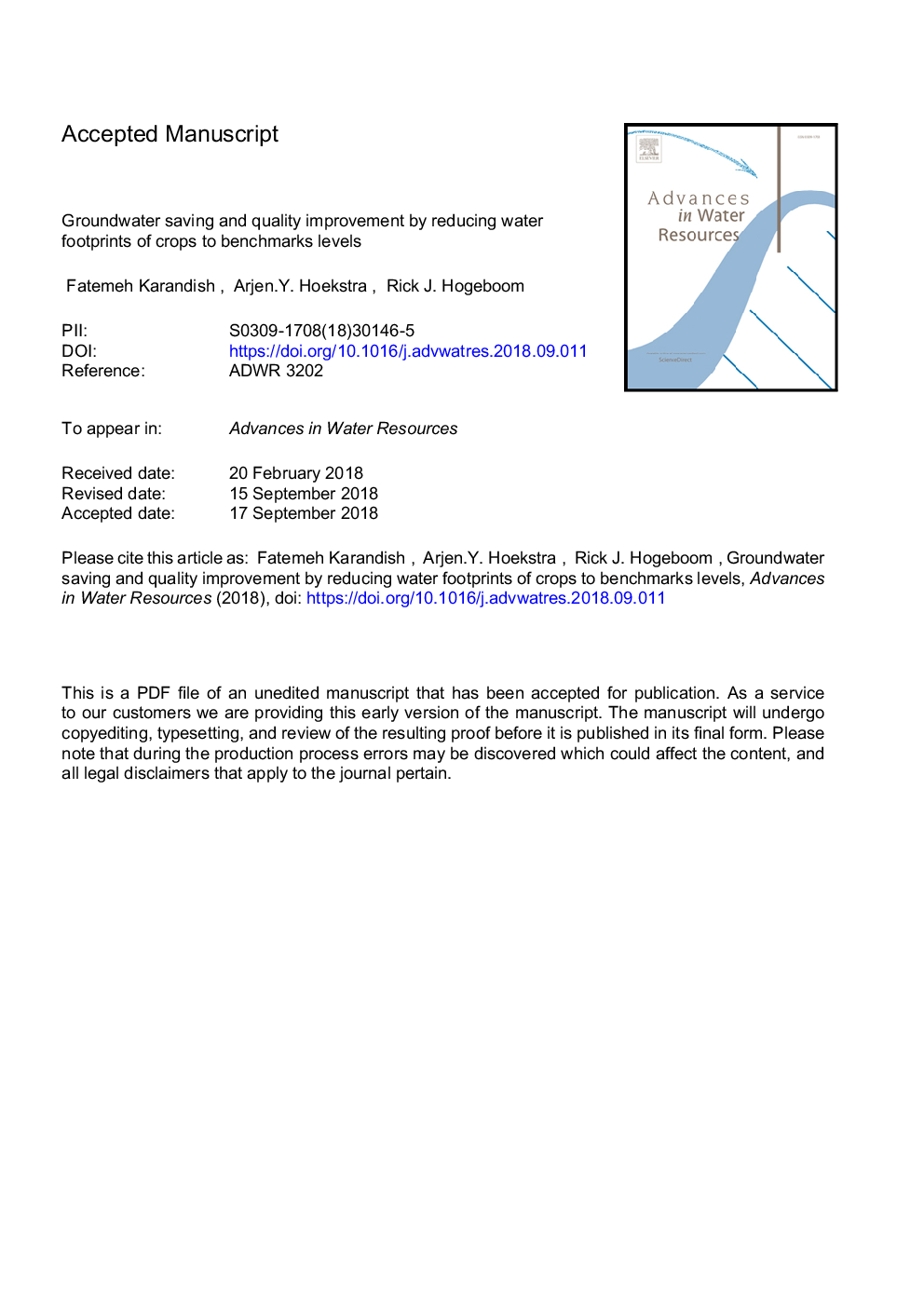| کد مقاله | کد نشریه | سال انتشار | مقاله انگلیسی | نسخه تمام متن |
|---|---|---|---|---|
| 11033220 | 1625591 | 2018 | 34 صفحه PDF | دانلود رایگان |
عنوان انگلیسی مقاله ISI
Groundwater saving and quality improvement by reducing water footprints of crops to benchmarks levels
ترجمه فارسی عنوان
صرفه جویی در آب های زیرزمینی و بهبود کیفیت با کاهش ضریب آب محصولات کشاورزی تا سطح معیارهای
دانلود مقاله + سفارش ترجمه
دانلود مقاله ISI انگلیسی
رایگان برای ایرانیان
کلمات کلیدی
ارزیابی ردیابی آب کمبود آب زیرزمینی، کیفیت آب زیرزمینی، آلودگی نیترات، معیار سنجش، صرفه جویی در مصرف آب، تولید محصولات کشاورزی،
موضوعات مرتبط
مهندسی و علوم پایه
علوم زمین و سیارات
فرآیندهای سطح زمین
چکیده انگلیسی
The formulation of water footprint (WF) benchmarks in crop production - i.e. identifying reference levels of reasonable amounts of water consumption and pollution per tonne of crop produced - has been suggested as a promising strategy to counter inefficient water use and pollution. The current study is the first to show how setting WF benchmarks may help alleviate groundwater scarcity and pollution, in a case study for Iran. We advance the field of WF assessment by developing WF benchmark levels for crop production, which we successively use to assess potential groundwater saving, quality improvement and economic water productivity gains. First, we calculate climate-specific WF benchmark levels for both total blue water footprints and nitrogen-related grey groundwater footprints for 26 crops, for all years in the period 1980-2010, at 5â¯Ãâ¯5â² spatial resolution. Second, we estimate the water saving potential for total blue water resources and for groundwater resources specifically, as well as the grey groundwater footprint reduction potential. Finally, we compare mean economic water productivities of crop production in the past with productivities if WFs are reduced to benchmark levels. We find that groundwater comprises up to 83% of total blue water consumption of irrigated crops, with the highest share in arid areas and in cereals. Aquifers are under significant to severe stress, except in the dry sub-humid zone, where irrigation mainly relies on surface water. Reducing WFs of crops to 25th percentile benchmark levels can save 32% of groundwater compared to the reference year 2010, and lower the nitrogen-related grey groundwater footprint by 23%. Moreover, it would increase average economic groundwater productivity in Iran by 20% for cereals, and 59% for nuts. We conclude that reducing WFs to climate-specific benchmark levels in a water-stressed country is a promising way to alleviate overexploitation of aquifers and increase national food security.
ناشر
Database: Elsevier - ScienceDirect (ساینس دایرکت)
Journal: Advances in Water Resources - Volume 121, November 2018, Pages 480-491
Journal: Advances in Water Resources - Volume 121, November 2018, Pages 480-491
نویسندگان
Fatemeh Karandish, Arjen.Y. Hoekstra, Rick J. Hogeboom,
